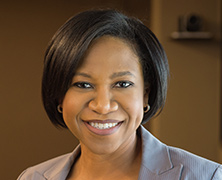It’s More Important to Love What You Do
I could not believe the words that were coming out of my mouth when I told our headmaster, “Well then, I choose French.” We were at the point in high school where we had to choose our primary area of focus that would determine our career path. I had a dilemma. I loved my French classes and would have elected math, chemistry, physics, and French, but physics and French were offered at the same time, and I could not take both. For first time in my life (educationally, at least) I chose what I wanted, and I loved every minute.
That decision framed my thought processes and my future career choices. I made even bolder decisions to step out of my comfort zone, try new things, do the unexpected, and allow failure to teach me. And teach it did. Later in my career, I realized that success comes from a diversity of experience—wins and losses, roles I enjoyed immensely, and roles I hated.
I started my career as a process engineer in the mining industry; then moved to chemicals. As a chemical engineer, I worked on multiple projects to improve results through process improvements. I later moved to IT, where I deployed Enterprise Resource Planning solutions to support manufacturing processes. Then, in Procurement, I held roles of increasing and varied responsibility, where I learned new sourcing, negotiation, and leadership skills. Each experience offered new opportunities to grow and develop as a leader. These are a few of the most important lessons:
- Love what you do. I used to think you should “do what you are good at,” which is why I don’t play golf today, but it’s more important to love what you do.
- Everyone is a leader. Leadership is not about position. It’s about mindset. We should take ownership of results.
- Build a network, professionally and personally. We need others to support our dreams as we support theirs.
At this point in my career, I am more focused on giving back—to my team, my colleagues, and my profession. I have benefited tremendously from prior managers, peers, and mentors, who gave me the coaching I needed to be a better leader. Now, I want to be a role model for those early in their careers, so they don’t make the mistakes I did.







Spectacular achievement Camille . Your greatness is fuelled by your genuine sense of humility and firery passion for success. You are an exceptional leader and a fantastic benefactor of humanity. Your maturity, youtfullness and charm has made you a most enviable human being.
I wish you good health and longevity as you continue to pursue your stellar performance.